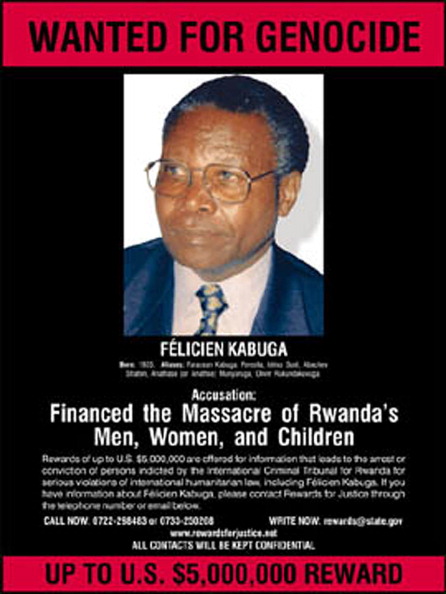
Rwanda genocide suspect to be transferred to The Hague
An international tribunal prosecuting alleged Rwandan genocide financier Felicien Kabuga on charges of genocide and crimes against humanity said Wednesday he was to be temporarily transferred to The Hague for a medical assessment.
The order comes after Kabuga’s lawyers asked that he be transferred to the Dutch city instead of Arusha in Tanzania, saying long-haul air travel would pose a health risk to the 85-year-old businessman because of the COVID-19 pandemic.
“I hereby amend the arrest warrant and order of transfer,” Arusha-based judge Iain Bonomy said, ordering the Mechanism for International Criminal Tribunals “to modify Kabuga’s conditions of detention to allow for his detention there.”
Judge Bonomy cited “exceptional circumstances” in making the order, adding that it would be in the “interest of justice to order that Kabuga be transferred temporarily to… the Hague Branch for a detailed medical assessment.”
The UN tribunal, a successor to the former Yugoslavia and Rwanda international war crimes tribunals has courtrooms both in The Hague and in the Tanzanian city.
Kabuga, arrested near Paris in May after 25 years on the run, is being sought over his alleged role in the 1994 Rwanda genocide by Hutu extremists of some 800,000 minority Tutsis as well as moderate Hutus.
Once one of Rwanda’s richest men, Kabuga is accused of having helped create the Interahamwe Hutu militia group and the Radio-Television Libre des Mille Collines, whose broadcasts incited people to murder, and of helping to buy machetes in 1993 that were distributed to genocidal groups.
His lawyers initially asked that he be put on trial in France, but late last month the country’s top court ruled that he could be transferred to the UN tribunal.
“In view of recent developments, there has been a significant shift in the nature and degree of information related to the risks associated with transferring Kabuga to Arusha on a long-haul flight,” judge Bonomy said on Wednesday.
The judge however wrote that it was too early to speculate “whether and under what circumstances he may be safely transferred to the Arusha branch of the Mechanism for trial.”
“This is best left, in the first instance, to the sound discretion of the Registry’s medical staff,” the order said.
Kabuga’s lawyer Emmanuel Altit told AFP the decision to move his client to The Hague was an “important step in a complex process,” but added he was “very satisfied” with the judge’s decision.






